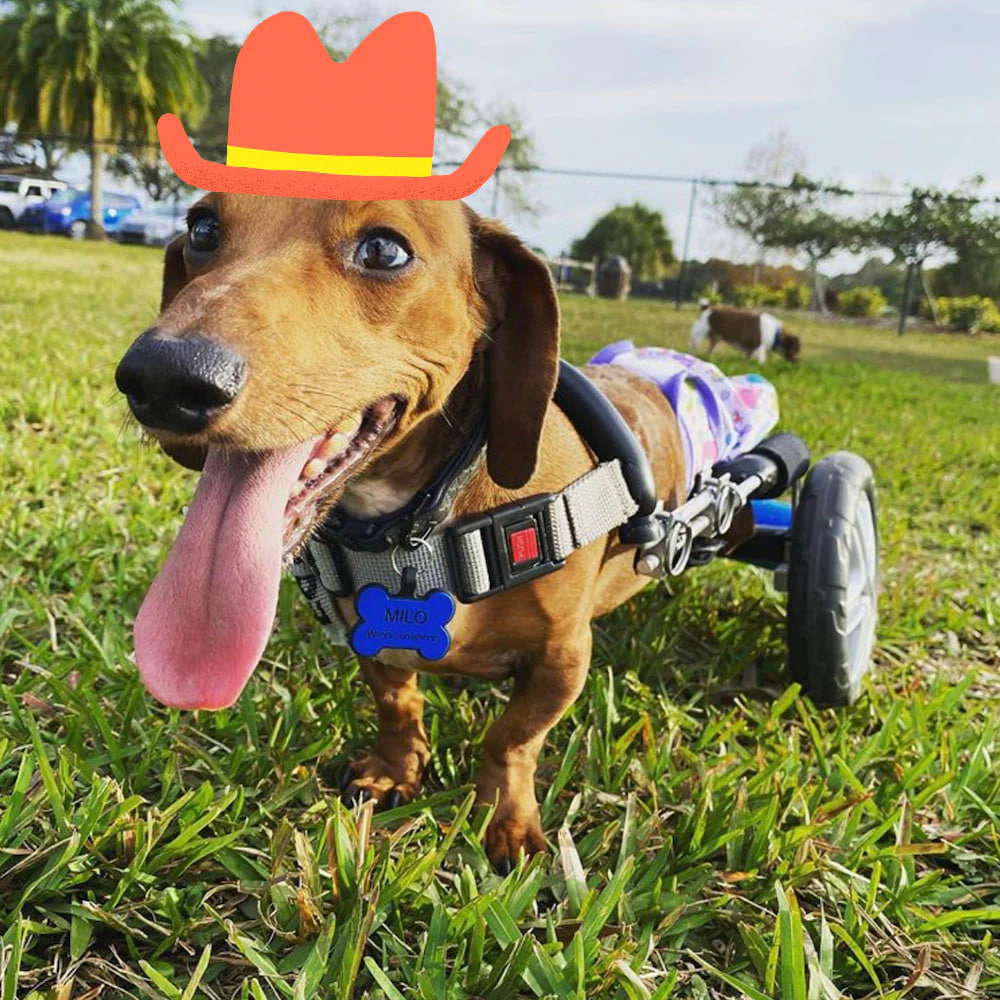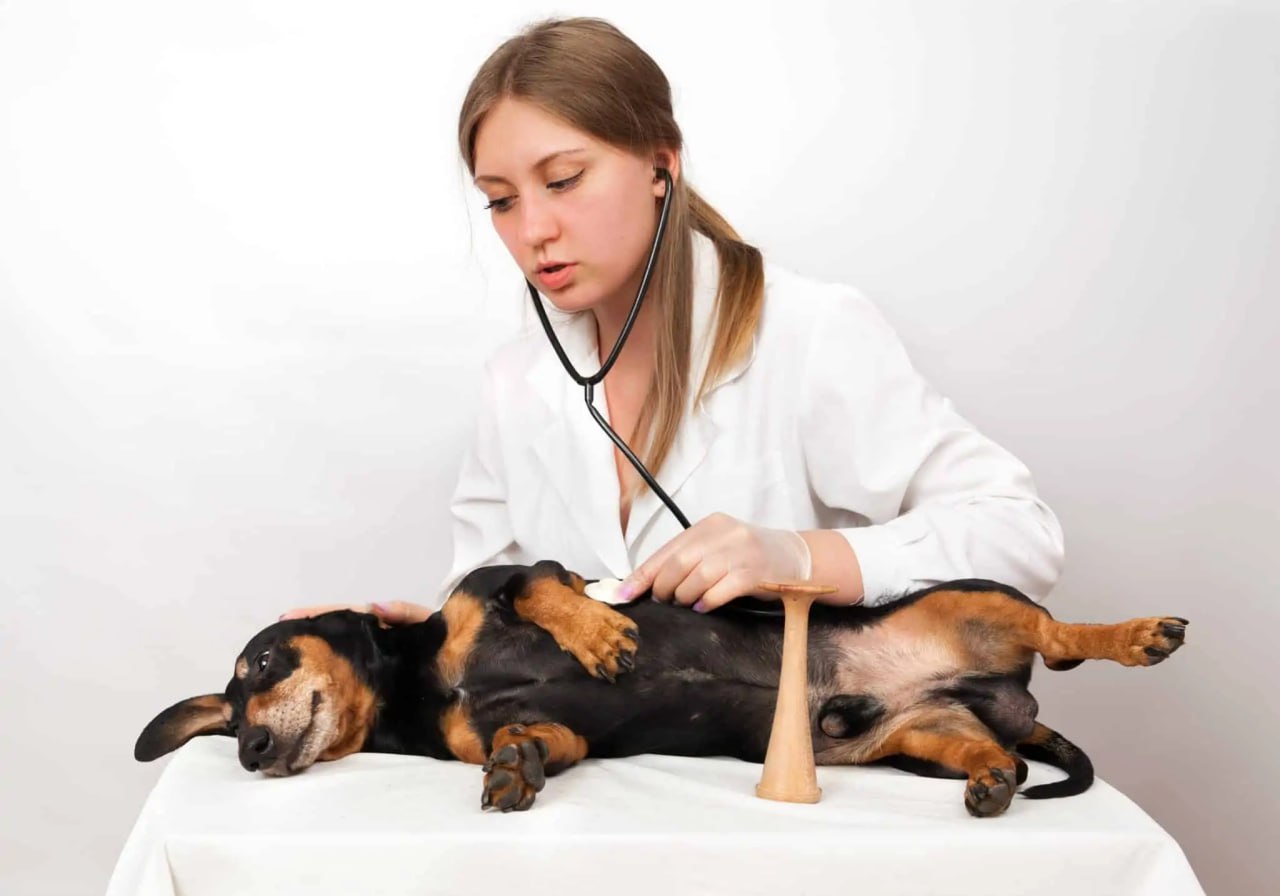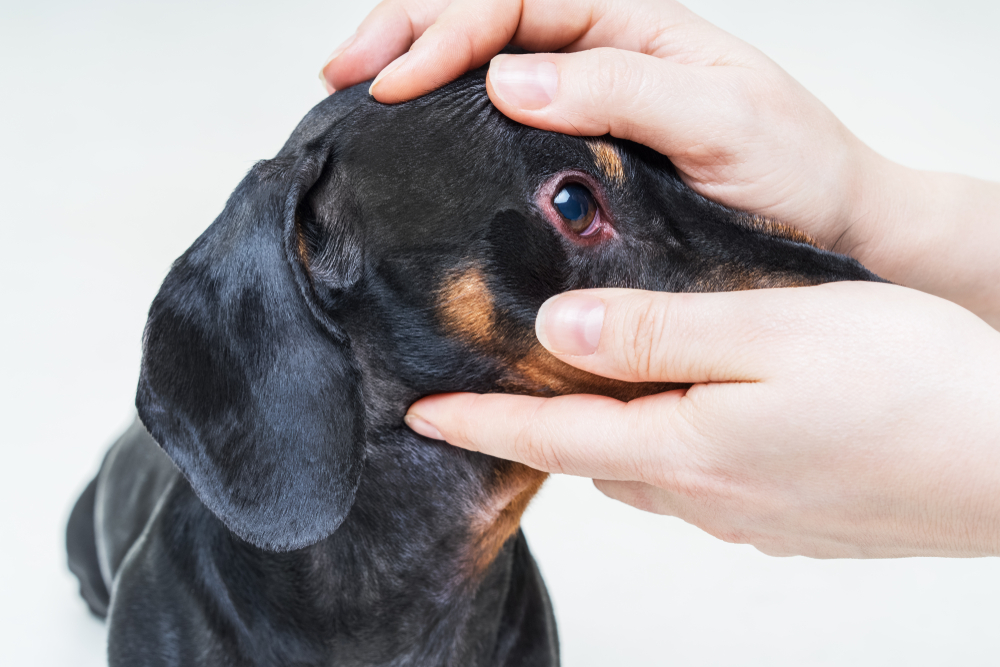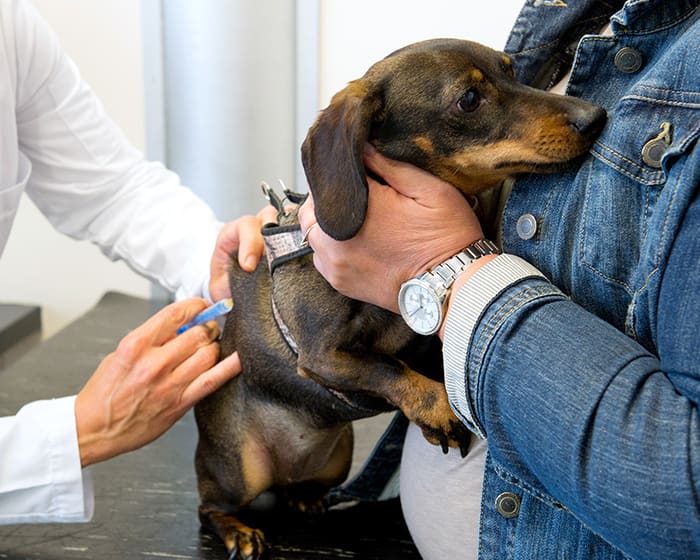Dachshunds, known for their elongated bodies and delightful personalities, are adored companions in many homes. Like all cherished pets, it is important for responsible owners to have an understanding of their health and lifespan. A common question that dachshund owners often ask is, ‘What do dachshunds usually die from?‘ This question reflects a genuine concern for the well-being of these special dogs. This article explores the various factors that can impact the longevity of dachshunds, discussing common health issues and offering advice on how to ensure a lengthy and healthy life for your beloved pet. Having this knowledge is crucial for dachshund owners who aim to provide optimal care for their furry family member.

What do dachshunds usually die from?
1. Intervertebral Disc Disease (IVDD)
A. What is IVDD and why are Dachshund dogs susceptible to this disease?
IVDD is a condition in which the discs that act as cushions between the vertebrae in the spine bulge or rupture into the space of the spinal cord. Dachshunds are especially susceptible to IVDD because of their elongated backs and short legs.
B. Symptoms and diagnosis of IVDD
Common symptoms consist of pain, challenges with walking, paralysis, and loss of control over bladder or bowel movements. Diagnosis is usually determined through physical examinations, X-rays, or MRIs.

C. Treatment options and prognosis
The treatment options can vary from using anti-inflammatory drugs and following strict rest to undergoing surgery in extreme situations. The outlook differs based on how severe the condition is and how well the treatment works.
D. Prevention strategies
Preventive measures consist of keeping a good weight, using ramps instead of jumping, and ensuring proper support when lifting or carrying the dog.
2. Cancer in Dachshund Dogs
A. Common types of cancer in Dachshund dogs
Typical types of cancer are mammary tumors, mast cell tumors, and lymphoma.
B. Risk factors and genetic factors
Genetics are a major factor, with specific genetic lines being more prone. Other risk factors include exposure to the environment and advancing age.

C. Early detection and screening
Regular visits to the veterinarian and staying alert for any changes in your dog’s behavior or unusual lumps can help in detecting issues early. Screening methods such as blood tests, ultrasounds, and biopsies may be employed for early detection.
D. Treatment options and survival rate
There are various treatment choices such as surgery, chemotherapy, and radiation. The chances of survival are influenced by the specific type and stage of cancer, with early detection usually leading to better results.
3. Heart Disease
A. Common types of heart disease in Dachshund dogs
Typical heart diseases include mitral valve disease and dilated cardiomyopathy.
B. Symptoms and diagnosis
Signs may include coughing, fatigue, breathing difficulties, and fainting. Diagnosis usually involves physical examinations, chest X-rays, and echocardiograms.

C. Management and treatment options
Care options include medications, lifestyle adjustments, and occasionally surgical interventions. Regular check-ups and follow-ups are essential.
D. Preventive measures for cardiovascular health
Preventative steps include maintaining a balanced diet, regular exercise, and routine vet check-ups.
4. Obesity and Related Health Problems
A. Why are Dachshund dogs easily obese?
Dachshunds are prone to becoming overweight because of their petite stature and lack of physical activity.
B. Health risks associated with obesity in Dachshund dogs
Obesity can result in diabetes, heart problems, and worsen IVDD.

C. Proper diet and nutrition for Dachshund dogs
It is important to provide a well-rounded diet that is appropriate for their size and how active they are. It is best to refrain from giving them too much food or treats that are high in calories.
D. Exercise is recommended to maintain a healthy weight
Taking your Dachshund for regular walks and play sessions is essential for maintaining their fitness and overall health.
5. Age-Related Disease
Elderly Dachshunds may experience a range of age-related illnesses such as arthritis, cognitive decline, and organ issues.

Other Common Health Problems
Cushing’s Disease
A situation in which the adrenal glands overproduce cortisol, causing symptoms such as heightened hunger, thirst, and frequent urination.
Bloating (Gastric Dilatation-Volvulus)
A serious medical emergency in which the stomach becomes twisted, causing a blockage of blood flow and trapping gas.
Dental Problems
Dachshunds are at risk for dental problems, which can result in more serious health issues if left untreated.
Eye Problems
Some common eye problems are cataracts and progressive retinal atrophy.

Premium Dachshund Care
Regular Veterinary Check-ups
It is important to take your Dachshund to the vet regularly in order to detect any possible health problems early and ensure their overall health. These visits usually involve physical exams, vaccinations, and standard blood tests. Depending on your dog’s medical background, additional tests such as X-rays or echocardiograms may be suggested.
Balanced Nutrition
It is crucial to give your Dachshund a well-rounded diet that caters to their specific nutritional requirements. Select the most suitable dog food for dachshunds designed for their age, size, and any health issues they may have. Refrain from giving them leftovers or treats high in calories. Seek advice from your vet to create a personalized meal plan for your Dachshund to guarantee they get all the essential nutrients they need.

Regular Exercise
Consistent physical activity is important for controlling weight and reducing the risk of health issues associated with obesity. Make sure to involve your Dachshund in daily exercises like walks, playtime, and agility training. It’s crucial to tailor the activities to suit their age and fitness level to prevent strain or harm. Keeping your dog active can improve their heart health and overall well-being.

Dental Care
It is common for people to neglect their Dachshund’s dental health, but it is actually very important in preventing serious health problems. Make sure to brush your Dachshund’s teeth frequently using toothpaste made specifically for dogs and give them dental chews to minimize plaque accumulation. Regular visits to the vet for dental check-ups and cleanings can help prevent gum disease and other dental issues that could impact your dog’s general well-being.
Grooming and Hygiene
Regular grooming is important to maintain the health of your Dachshund’s coat and skin. It is recommended to brush their coat regularly to get rid of loose hairs and avoid tangling, and bathe them when necessary using shampoos that are safe for dogs. Remember to inspect their ears for any indications of infection, clean them frequently, and trim their nails to prevent discomfort and possible injuries.

Mental Stimulation
It is important to keep your Dachshund mentally engaged to avoid boredom and enhance their overall health. Offer interactive toys, puzzle feeders, and training activities to help keep their mind sharp. Socializing with other dogs and people can also improve their emotional well-being and prevent behavioral problems.
Safe Environment
Establish a secure living space to safeguard your Dachshund from possible dangers. Utilize baby gates to restrict access to stairs and avoid accidents, and offer ramps or steps for them to safely reach furniture. Store hazardous items such as cleaning products and medicines in inaccessible areas. By creating a safe environment, you can reduce the chances of mishaps and harm.
Monitor for Signs of Illness
Staying alert to any alterations in your Dachshund’s behavior, eating habits, or overall health can assist in identifying health problems at an early stage. Look out for symptoms like tiredness, reduced appetite, throwing up, alterations in urination or bowel movements, and abnormal growths. Detecting issues early and seeking timely medical attention can greatly enhance the outlook for many health conditions.

Preventive Care and Longevity
Periodic Veterinary Examination and Screening
It is important to schedule regular veterinary appointments to catch and prevent health problems early on.
The Importance of Dental Care
Getting regular dental cleanings can help avoid major health issues.
Maintain a Healthy Lifestyle (Diet and Exercise)
Ensuring your Dachshund has a well-rounded diet and engages in consistent physical activity can greatly enhance their overall well-being.
Genetic Testing and Responsible Breeding
Choose breeders who perform genetic testing to reduce the chances of inherited illnesses.

Frequently Asked Questions About Dachshunds’ Health
Q : Does regular exercise maintain the health of dachshunds, and how much exercise does a dachshund need?
Regular physical activity is essential for keeping a dachshund healthy and happy. The key question is: How much exercise does a dachshund require? Despite being small, dachshunds are lively dogs that need plenty of exercise. Typically, they should get between 30 minutes to 1 hour of exercise daily, depending on their age and fitness level. Activities like walking, playing fetch, or running can help them stay in shape and prevent obesity, which is common in this breed. It’s crucial to establish a consistent exercise routine to ensure your dachshund’s overall well-being and growth.
Q : How long do dachshunds live?
Dachshunds typically live for 12 to 16 years, but factors like genetics, diet, exercise routine, and general health can affect the Dachshund lifespan. Providing proper veterinary care and meeting their specific needs can greatly help in ensuring dachshunds have a long and healthy life.
Conclusion
Dachshunds often pass away due to severe health issues such as heart disease, cancer, and spinal problems. Understanding ‘what do dachshunds usually die from‘ can help in addressing these concerns. Providing them with appropriate nutrition and attention can help reduce these risks and extend their life expectancy. It is essential to schedule regular visits to the vet and prioritize preventive healthcare in order to determine the common causes of death for dachshunds.

